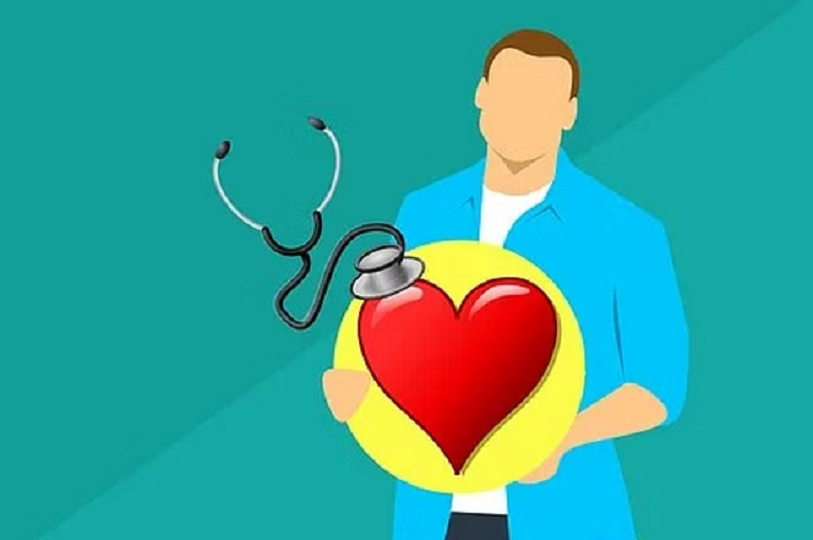
PC: amarujala
Cardiovascular diseases are on the rise across the world, killing a large number of people. According to WHO, about 1.79 million people die every year due to cardiovascular diseases. Generally, most heart-related problems are attributed to lifestyle and poor dietary choices.
However, many people remain unaware and have many misconceptions about it, which can put their lives in danger. On the occasion of World Heart Day on 29th September, it is important to clear these misconceptions and raise awareness about heart health to ensure that your heart remains safe.
"I'm younger; I won't have heart problems!"
If you think so then you are wrong. Heart problems do not necessarily depend on your age. Your lifestyle during childhood and adolescence can affect your risk of heart disease. Plaque buildup in your arteries can begin early in life, and arteries can become blocked later. Heart disease is becoming increasingly common among young and middle-aged individuals. Risk factors for heart disease, such as obesity and type 2 diabetes, are now prevalent in younger age groups.
"When I have a heart attack, I will feel chest pain!"
If you believe this, it's time to change your thinking. While chest pain is a common symptom of a heart attack, sometimes a heart attack manifests with subtle symptoms. These may include difficulty breathing, nausea, dizziness, and discomfort or pain in one or both arms, jaw, throat, stomach, or back. Even if you are not sure it is a heart attack, call the emergency helpline immediately.
"As long as I'm taking medication, my diabetes won't pose a threat to my heart!"
Managing diabetes is beneficial for heart health, but it does not completely eliminate the risks. Even when blood sugar levels are under control, diabetes can increase the risk of heart disease and stroke. This is because risk factors for heart disease, such as high blood pressure, excess weight, physical inactivity, and smoking, are common in individuals with diabetes.

PC: amarujala
"There's no need to check cholesterol levels before middle age!"
If you think so, it's time to reconsider. The American Heart Association recommends starting cholesterol testing at age 20 and repeating it every five years. If there is a history of heart disease in your family, you may get it earlier. High cholesterol can be detected in children from affected families, and if left uncontrolled, it can increase the risk of heart disease as they age. However, you can help yourself and your family by adopting a healthy diet and regular exercise.
“Heart failure means the heart has stopped working!”
The heart stops working during cardiac arrest, not during heart failure. In heart failure, the heart continues to beat, but it cannot pump blood effectively. This can cause symptoms such as difficulty breathing, swelling in the feet and ankles, or persistent coughing and wheezing. Although heart failure is not a heart attack, it still requires immediate medical attention.

PC: amarujala
"I shouldn't exercise after having a heart attack!"
If you believe this, it's time to change your perception. The American Heart Association recommends at least 150 minutes of moderate-intensity aerobic activity each week for better heart health. However, it is important to consult a healthcare professional to determine the type and intensity of exercise that is appropriate for you.
"My family history guarantees I will have heart disease!"
Although having a family history of a disease may increase your risk, it doesn't mean you're destined to have it. By being vigilant about your health and adopting a healthy lifestyle, including regular physical activity, a balanced diet, maintaining a healthy weight, and avoiding smoking, you can significantly reduce your risk of heart disease. Still, it is important to get regular checkups done to monitor your heart health.










